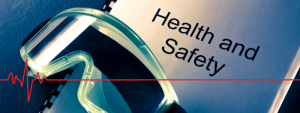Lung cancer remains one of the most common and serious types of cancer, with smoking being the leading cause. While personal lifestyle choices like smoking are a major factor, the workplace can also play a critical role in the development and prevention of lung cancer. For employers, understanding the connection between occupational health and lung cancer is vital in safeguarding the wellbeing of their employees.
The Link Between Smoking and Lung Cancer
It’s well-established that smoking is the leading cause of lung cancer, responsible for more than 70% of cases. Tobacco smoke contains over 7,000 chemicals, many of which are harmful and carcinogenic. Both direct smokers and those exposed to second-hand smoke are at a high risk of developing lung cancer.
In the context of the workplace, employers have a responsibility to reduce exposure to tobacco smoke and promote a healthier environment. Supporting efforts to quit smoking not only improves employee health but also reduces absenteeism, increases productivity, and fosters a positive workplace culture.
Occupational Health Risks and Lung Cancer
While smoking is the primary cause of lung cancer, certain occupational exposures can increase the risk, particularly in industries such as construction, mining, and manufacturing. Exposure to substances like asbestos, diesel exhaust, silica dust, and certain chemicals (e.g., arsenic and chromium) can significantly increase the likelihood of developing lung cancer, especially for those who smoke.
It’s crucial for employers in high-risk industries to implement strict health and safety protocols to reduce exposure to these hazardous materials. Regular health checks and lung function tests are essential components of a comprehensive occupational health programme, ensuring that early signs of lung issues are detected and addressed promptly.
The Role of Occupational Health in Lung Cancer Prevention
Occupational health play a key role in preventing lung cancer by:
- Regular lung health assessments: For employees working in industries with higher exposure to harmful substances, regular lung function screenings. These tests can identify early signs of lung damage, allowing for timely interventions before serious complications arise.
- Ensuring a smoke-free workplace: By enforcing smoke-free policies, both indoors and in designated outdoor areas, employers can reduce the risks associated with second-hand smoke. A strict no-smoking policy not only protects non-smokers but also encourages smokers to consider quitting.
- Educating employees: Providing education on the dangers of smoking and the occupational hazards that contribute to lung cancer is vital. Regular workshops, informational materials, and wellness programmes can raise awareness and encourage healthier lifestyle choices among staff.
Supporting Employees in High-Risk Environments
For employees in industries like construction or manufacturing, the risks of lung cancer may be higher due to the materials and substances they come into contact with daily. It is essential that these workers receive the right level of occupational health support, including regular medicals, protective equipment, and awareness of the dangers they face.
Employers must take proactive steps to:
- Ensure proper ventilation in workspaces.
- Provide personal protective equipment (PPE), such as respirators, where necessary.
- Implement regular risk assessments and safety checks.
- Offer periodic health monitoring to detect any early symptoms of lung issues.
Protecting Employee Health
Lung cancer is a devastating disease, but with the right occupational health measures, businesses can significantly reduce the risk factors related to smoking and workplace exposures. By encouraging employees to quit smoking, enforcing smoke-free environments, and offering regular health screenings, employers can play a crucial role in protecting their employees’ long-term health.
The “Lekker Lung Challenge” – Time to kick that stogie habit!
November 21: Calling all proud South Africans! It’s time to stub out those smokes, crush those cravings, and give your lungs a well-deserved braai break – because it’s Great American Smokeout day!
We know, we know – your cigarette break has become part of your daily routine, like a cup of rooibos or dodging potholes. But, imagine using that break to actually… breathe easier. Crazy, right? Here’s why you should give it a go:
Why Quit?
- Your Wallet Will Thank You: Let’s be real – cigarettes are expensive. You could be saving enough for that much-needed weekend away in the bush, or hey, even for your boerie rolls at the next braai!
- Braaing Without the Wheezing: Let’s face it, coughing like your old bakkie trying to start in winter is not a good look. Picture this: you, standing by the fire, flipping steaks with clear lungs and zero spluttering. You’ll be the true braai master of the day!
- Your Clothes Will Stop Smelling Like a Smoke Signal: Ever wonder why your friends stand downwind when you light up? Time to stop smelling like a chimney and start smelling like a legend. Bonus: Your car’s air freshener might finally work!
- Health Perks – With Extra Nandos Sauce!: Here’s the spicy part – quitting now can reduce your risk of all sorts of nasty things: heart attacks, lung disease, and wrinkles (yes, even your face is tired of those smokes). Plus, you’ll have more energy to tackle the big things in life… like the next rugby match.
Ready for the Lekker Lung Challenge?
We dare you to put down the ciggies for just one day. If you can survive Eskom’s loadshedding, you can survive this! Grab your mates, make it a challenge, and see who can last the longest without a puff. No excuses – your lungs will thank you, and so will your future self when you’re still dancing the tsek to Mandoza in your golden years.
How to Join In:
- Step 1: Throw those cigarettes out – yes, the secret stash under the car seat too.
- Step 2: Replace your smoke break with something healthier (no, not just another cup of coffee).
- Step 3: Tell your friends, colleagues, and that random guy in the queue – let’s all quit together and see who cracks first!
Take Action Today
At Care Net Consultants, we specialise in occupational health services designed to keep your workforce healthy and compliant.
Whatsapp : 076 670 0634
sales@carenetconsultants.co.za



